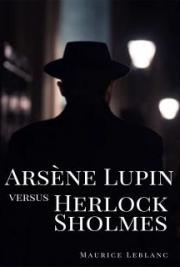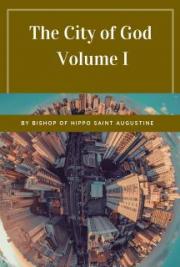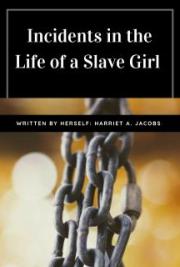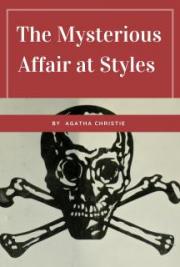34. Nicol Brinn's Story (Concluded)
"The incidents of the next seven years do not concern you, gentlemen. I had one aim in life--to forget. I earned an unenviable reputation for foolhardy enterprises. Until this very hour, no man has known why I did the things that I did do. From the time that I left India until the moment when fate literally threw me in the way of the late Sir Charles Abingdon, I had heard nothing of the cult of Fire-Tongue; and in spite of Naida's assurance that its membership was not confined to Orientals, I had long ago supposed it to be a manifestation of local fanaticism, having no political or international significance.
"Then, lunching with the late Sir Charles after my accident in the Haymarket, he put to me a question which literally made me hold my breath.
"'Do you know anything of the significance of the term Fire-Tongue?' he asked.
"I am not accustomed to any display of feeling in public, and I replied in what I think was an ordinary tone:
"'In what connection, Sir Charles?'
"'Well,' said he, watching me oddly, 'I know you have travelled in India, and I wondered if you had ever come in contact with the legend which prevails there, that a second Zoroaster has arisen, to preach the doctrine of eternal fire.'
"'I have heard it,' I replied, guardedly.
"'I thought it possible,' continued Sir Charles, 'and I am tempted to tell you of a curious experience which once befell me during the time that I was a guest of my late friend Colonel Banfield in Delhi. My reputation as an osteologist was not at that time so fully established as it later became, but I already had some reputation in this branch of surgery; and one evening a very dignified Hindu gentleman sought an interview with me, saying that a distinguished native noble, who was a guest of his, had met with a serious accident, and offering me a fee equivalent to nearly five hundred pounds to perform an operation which he believed to be necessary.
"'I assured him that my services were at his disposal, and blankly declined to accept so large a fee. He thereupon explained that the circumstances were peculiar. His friend belonged to a religious cult of an extremely high order. He would lose caste if it became known that he had been attended by a Christian surgeon; therefore my visit must be a secret one.
"'It made no difference,' I replied. 'I quite understood; and he might rely upon my discretion.
"'Accordingly I was driven in a car which was waiting to some house upon the outskirts of the city and conducted to a room where the patient had been carried. I saw him to be a singularly handsome young man, apparently about twenty- three years of age. His features were flawless, and he possessed light ivory skin and wavy jet-black hair. His eyes, which were very dark and almond-shaped, had a strange and arresting beauty. But there was something effeminate about him which repelled me, I cannot say in what way; nor did I approve of the presence of many bowls of hyacinths in the room.
"'However, I performed the operation, which, although slight, demanded some skill, and with the nature of which I will not trouble you. Intense anxiety was manifested by the young man's attendants, and one of these, a strikingly beautiful woman, insisted on remaining while the operation was performed.
"'She seemed more especially to concern herself with preserving intact a lock of the young man's jet-black hair, which was brushed in rather an odd manner across his ivory forehead. Naturally enough, this circumstance excited my curiosity and, distracting the woman's attention for a moment--I asked her to bring me something from a table at the opposite side of the room--I lightly raised this wayward lock and immediately replaced it again.
"'Do you know what it concealed, Mr. Brinn?'
"I assured him that I did not.
"'A mark, apparently natural, resembling a torch surmounted by a tongue of fire!’
"I was amazed, gentlemen, by Sir Charles's story. He was given his fee and driven back to his quarters But that he had succeeded where I had failed, that he had actually looked upon Fire-Tongue in person, I could not doubt. I learned from this, too, that the Prophet of Fire did not always remain in his mountain stronghold, for Delhi is a long way from the Secret City.
"Strange though it must appear, at this time I failed to account for Sir Charles confiding this thing to me. Later, I realized that he must have seen the mark on my arm, although he never referred to it.
"Well, the past leapt out at me, as you see, and worse was to come. The death of Sir Charles Abingdon told me what I hated to know: that Fire-Tongue was in England!
"I moved at once. I inserted in the Times the prearranged message, hardly daring to hope that it would come to the eye of Naida; but it did! She visited me. And I learned that not only Sir Charles Abingdon, but another, knew of the mark which I bore!
"I was summoned to appear before the Prophet of fire!
"Gentlemen, what I saw and how I succeeded in finding out the location of his abode are matters that can wait. The important things are these: first, I learned why Sir Charles Abingdon had been done to death!
"The unwelcome attentions of the man known as Ormuz Khan led Sir Charles to seek an interview with him. I may say here and now that Ormuz Khan is Fire- Tongue! Oh! it's a tough statement--but I can prove it. Sir Charles practically forced his way into this man's presence--and immediately recognized his mysterious patient of years ago!
"He accused him of having set spies upon his daughter's movements--an accusation which was true--and forbade him to see her again. From that hour the fate of Sir Charles was sealed. What he knew, the world must never know. He had recorded, in a private paper, all that he had learned. This paper was stolen from his bureau--and its contents led to my being summoned to the house of Fire-Tongue! It also spurred the organization to renewed efforts, for it revealed the fact that Sir Charles contemplated confiding the story to others.
"What were the intentions of the man Ormuz in regard to Miss Abingdon, I don't know. His entourage all left England some days ago--with three exceptions. I believe him to have been capable of almost anything. He was desperate. He knew that Ormuz Khan must finally and definitely disappear. It is just possible that he meant Miss Abingdon to disappear along with him!
"However, that danger is past. Mrs. McMurdoch, who to-day accompanied her to his house, was drugged by these past-masters in the use of poisons, and left unconscious in a cottage a few miles from Hillside, the abode of Ormuz.
"You will have observed, gentlemen, that I am somewhat damaged. However, it was worth it! That the organization of the Fire-Worshippers is destroyed I am not prepared to assert. But I made a discovery to-day which untied my hands. Hearing, I shall never know how, that Naida had had a secret interview with me, Fire-Tongue visited upon her the penalty paid seven years ago by my informant in Nagpur, by Sir Charles Abingdon, recently, by God alone knows how many scores--hundreds--in the history of this damnable group.
"I found her lying on a silken divan in the deserted house, her hands clasped over a little white flower like an odontoglossum, which lay on her breast. It was the flower of sleep--and she was dead.
"My seven years' silence was ended. One thing I could do for the world: remove Fire-Tongue--and do it with my own hands!
"Gentlemen, at the angle where the high road from Upper Claybury joins the Dover Road is the Merton Cottage Hospital. Mr. Harley is awaiting us there. He is less damaged than I am. A native chauffeur, whose name I don't know, is lying insensible in one of the beds--and in another is a dead man, unrecognizable, except for a birthmark resembling a torch on his forehead, his head crushed and his neck broken.
"That dead man is Fire-Tongue. I should like, Mr. Commissioner, to sign the statement."







